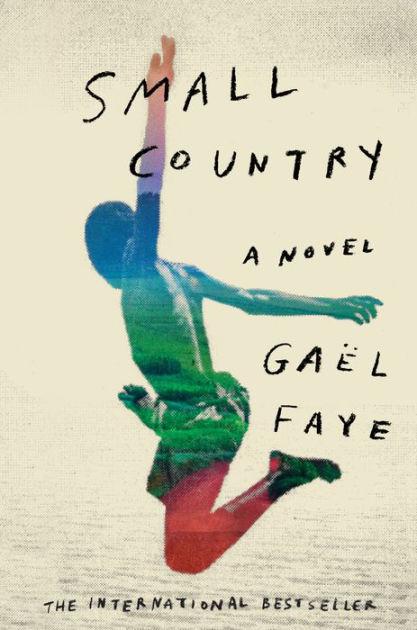Without sounding ungrateful whatsoever, Gaël Faye, novelist, poet, rapper and author of the book “Small Country,” shows his readers how departing from a civil war may not be the wonder one would think it is, while also reflecting on race and immigration issues.
The novel is a collection of Faye’s childhood stories and adventures in Burundi, a country deeply affected by the Civil War in Rwanda, and it’s almost entirely written through a child’s perspective. There are two short parts, one in the beginning and one in the end, where the author talks about his present feelings and points of view. Those parts are used in really careful and significant ways to explain why he is exposing all of those memories.
One of the most impactful moments in the book happens while he’s talking about his life as an adult. Faye explains the aftermath of fleeing a country on the edge of a genocide, his country, his home. He really opens up about how he feels about moving from Burundi to France twenty years later. While it may sound like some kind of salvation, he shines a whole new light on war refugees and immigration. He sees it as leaving what’s left of his family and friends behind to save his own life.
The writer starts another one of his main discussions during the book’s prologue: how an 11-year-old boy understands a civil war, its causes, its consequences and the complexity of it all. A young Faye shows interest in making sense of what separates the Tutsi from the Hutu, the two groups that fought the Rwandan Civil War. This questioning is the starting point to a much more intricate analysis of race and the War itself along the story.
He exposes the inner workings of the Civil War, the formation of political groups, the massacres, and the loss of his innocence, bit by bit. The reader gets the chance to painfully understand how the war in Rwanda affected its neighbor country, Burundi.
“Small Country” can open one’s mind to the different perspectives of a war that goes beyond newspapers, government leaders’ speeches and numbers. Gaël Faye can make you hurt and uncomfortable with his art. However, this shows that he is speaking for the Burundians through his book, in the way he wants to portray it.
_Edited by Siena DeBolt | [email protected]_








